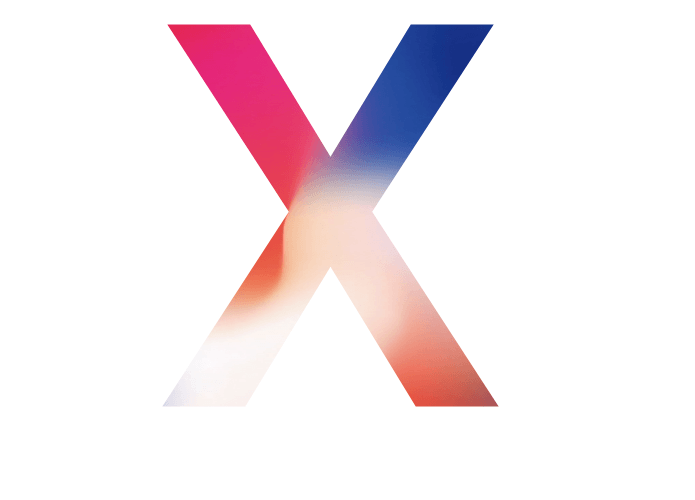The iPhone X was supposed to be a blockbuster device that would shatter all the previous iPhone sales records. The Apple iPhone X sales were strong during the holiday shopping season. It seems like consumers who wanted to buy the iPhone X have already got one. Last month, Apple shares plunged after Taiwan-based Economic Daily News reported that the Cupertino company was expecting a weaker demand for the iPhone X during the March quarter.
Apple iPhone X sales even lower than iPhone 8 line
Now KeyBanc Capital Markets analyst John Vinh has told investors that the reports of a weaker than expected Apple iPhone X sales were likely accurate. Vinh estimates that the iPhone X sales are even lower than the iPhone 8 series, which are only minor upgrades over last year’s models. The analyst blamed the anniversary model’s high price tag and limited promotion for the poor consumer response.
John Vinh wrote in his research note that based on conversations with carriers, the Apple iPhone X sales were “worse-than-expected.” However, the inventory remained healthy because Apple resolved the supply constraints only a few weeks ago. The tech giant was facing production issues with the iPhone X’s TrueDepth camera components. It had resolved the issues by mid-December.
Predicting a weak iPhone X demand, KeyBanc Capital Markets has downgraded the Cirrus Logic stock from Overweight to Sector weight rating. Cirrus Logic makes audio chips for smartphone vendors. According to data from FactSet, it generates nearly 80% of its revenues from Apple alone. The research firm said the iPhone X and iPhone 8 were “unlikely to be a catalyst” for the Cirrus Logic stock, reports CNBC.
Carrier checks by John Vinh suggest that the total iPhone demand was still in line with his estimates due to the iPhone 8 promotions. All the four major carriers were running buy-one-get-one (BOGO) promotions, which helped boost the iPhone 8 and 8 Plus sales. Consumer Intelligence Research Partners has also reported that the iPhone 8 and 8 Plus sold better than the iPhone X during the anniversary model’s first month of launch.
Apple to cut the iPhone X production
According to the Economic Daily News, Apple forecasts to sell only 30 million iPhone X units in the March quarter, down from its previous estimate of 50 million units. Research firm Sinolink Securities has also reduced its shipment forecast from 45 million to 35 million units. JL Warren Capital analysts believe Apple would be able to sell only 25 million iPhone X units in January-March quarter.
On the other hand, Rosenblatt Securities analyst Jun Zhang doesn’t agree with the reports of weaker than expected Apple iPhone X sales. Jun Zhang remains optimistic, saying there were “no further order cuts after the holiday season.” The supply chain reports of product cuts might be referring to the iPhone 8 and 8 Plus rather than the iPhone X. The iPhone 8 series and the iPhone X share many components. Apple had asked its suppliers to cut the iPhone 8 production following the launch of the iPhone X.
Trump’s tax reform to boost Apple’s stock buyback program
Irrespective of the Apple iPhone X sales, one research firm remains bullish on the Apple stock. UBS Securities analyst Steven Milunovich said in a research note that the iPhone maker’s capital return program is set to get much bigger. UBS maintained its Buy rating on the stock with $190 price target. The Cupertino company holds roughly $250 billion in overseas cash and cash equivalents. The recent Trump tax reform passed by Congress would allow the American corporations to bring back their overseas cash at a tax rate of just 15.5%. Previously, the tax rate was 35%.
Steven Milunovich believes a lower cash repatriation tax means Apple would have an additional $25 billion available for buying back its own stock. The analyst added that repatriation of roughly $250 billion of offshore cash would be a big boost for Apple’s share buyback program. That’s because Apple believes its stock remains attractive as its services business is undervalued.
UBS points out that Apple has been repurchasing about 5% of its shares in the last few years. The research firm expects Apple to buy back $122 billion of its stock through 2019. Wall Street investors are busy debating Apple’s future as the iPhone business matures. Milunovich believes Apple could potentially buy 14% of its stock at $90 billion and more shares “at lower levels of net cash should limit any potential stock downside.”
Apple will reportedly launch as many as three iPhones in September this year. Two of them would sport OLED panels – 5.8-inch and 6.5-inch – and the third one would feature a 6.1-inch LCD screen. Apple has signed a deal with LG Display to source OLED displays for the 6.5-inch iPhone. Samsung would continue to supply panels for the standard 5.8-inch version, which would be a successor to the iPhone X.





